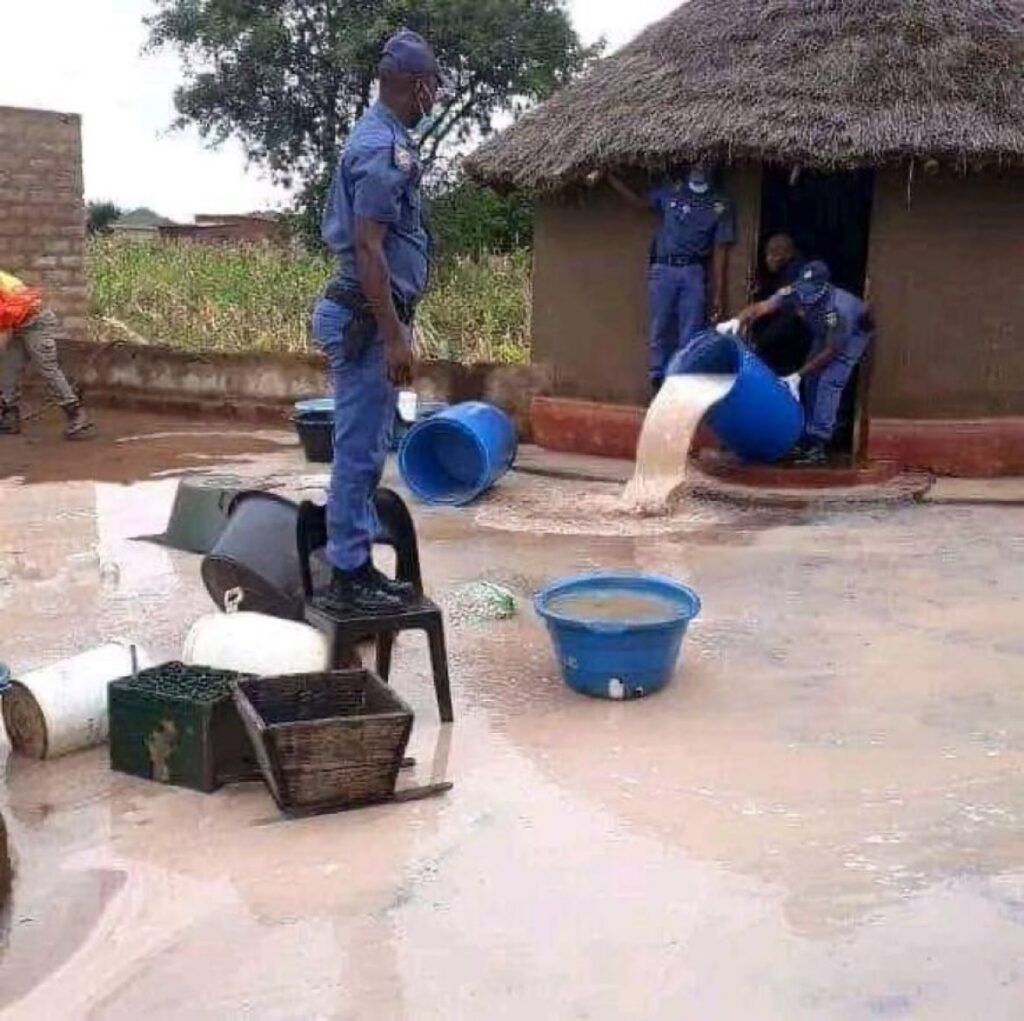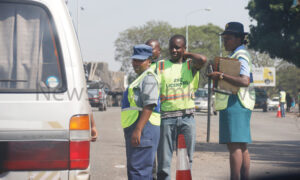A reader has asked if a picture posted by an account on X is current or old. The picture was posted by @matigary with the caption ‘So villagers can’t brew beer, but South African Breweries aka InBev can? 😳’.
The account has 174,900 followers and the post garnered 30,000 views and 21 reposts.
The picture is an old one from the COVID-19 lockdowns.

The picture was used in this 17 May, 2020 article, headlined ‘Home brewing in the time of COVID-19’. The picture is captioned, ‘Police destroy traditional beer in the Eastern Cape/Twitter’.
The confusion might have arose from its re-appearance on X on 2 September 2024. It was posted by popular South African account, @ChrisEcxel102.
It was also posted on the same day here and here.
Re-contextualised Pictures
These are images that have been removed from their original context and presented in a new, often misleading or deceptive,setting. This can involve altering the caption, adding or removing elements, or even digitally manipulating the image itself.
Using old pictures out of context can have significant dangers, including:
1. Misinformation and Falsehoods:
- Distorted narratives: Out-of-context images can create false narratives or support misleading claims.
- Fabricated events: They can be used to fabricate events that never happened or to misrepresent existing ones.
2. Reputation Damage:
- Personal harm: Individuals can be unfairly targeted or accused of wrongdoing due to misleading images.
- Organizational damage: Companies or institutions can suffer reputational damage if their images are used to promote harmful or false information.
3. Social Division and Polarization:
- Fueling prejudice: Out-of-context images can reinforce stereotypes or prejudices, leading to social division.
- Heightened tensions: They can contribute to a climate of fear and distrust, hindering constructive dialogue.
4. Legal Consequences:
- Copyright infringement: Using images without proper permission or attribution can lead to copyright infringement lawsuits.
- Defamation: False or misleading information based on out-of-context images can result in defamation claims.
5. Erosion of Trust:
- Undermining credibility: The widespread use of out-of-context images can erode trust in news media, social media, and other sources of information.
- Difficulty distinguishing truth from fiction: It becomes harder for people to discern fact from fiction, making it more challenging to make informed decisions.
To avoid these dangers, it is crucial to verify the authenticity and context of images before sharing or using them. Fact-checking websites, reverse image search tools, and critical thinking can help ensure that images are used responsibly and ethically.
Conclusion
The picture showing South African police spilling home brewed beer is not a current one. It is from 2020 where police were enforcing COVID-19 lockdown regulations.








